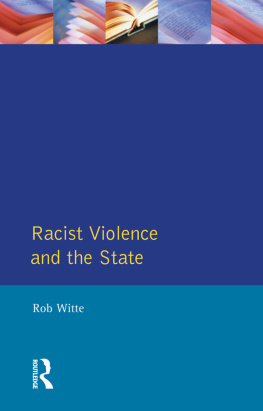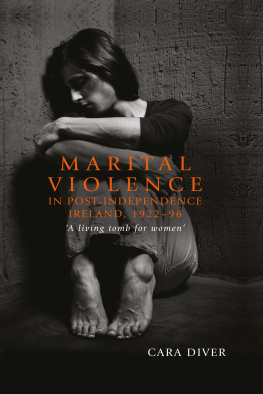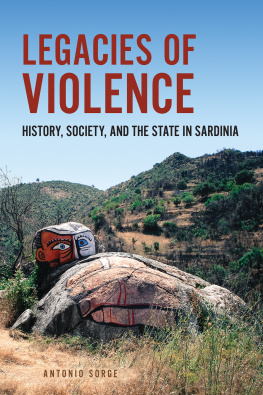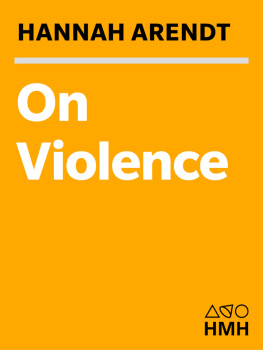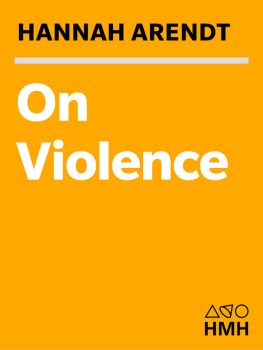Remembering Violence
This volume examines the ways in which the violent legacies of the twentieth century continue to affect the concept of the nation. Through a study of three societies commemoration of notorious episodes of 1930s state violence, the author considers the manner in which attention to the state violence authoritarianism, and exclusions of the last century have resulted in challenges to dominant conceptions of the nation. Based on extensive ethnographic research in El Salvador, Spain, and the Dominican Republic, Remembering Violence focuses on new public sites of memory, such as museum exhibitions, monuments, and commemorations powerful loci for representing ideas about the nation and explores the responses of various actors civil society, government, and diasporic citizens as well as those of UN and other international agencies invested in new nation-building goals. With attention to the ways in which memory practices explain ongoing national exclusions and contemporary efforts to contest them, this book will appeal to scholars across the social sciences and humanities with interests in public memory and commemoration.
Robin Maria DeLugan is Associate Professor of Anthropology at the University of California, Merced, USA, and the author of Reimagining National Belonging: Post-Civil War El Salvador in a Global Context (2012).
Memory Studies: Global Constellations
Series editor:
Henri Lustiger-Thaler, Ramapo College of New Jersey, USA and cole des Hautes tudes en Sciences Sociales, France
The past in the present has returned in the early twenty-first century with a vengeance, and with it the expansion of categories of experience. These experiences have largely been lost in the advance of rationalist and constructivist understandings of subjectivity and their collective representations. The cultural stakes around forgetting, useful forgetting and remembering, locally, regionally, nationally and globally have risen exponentially. It is therefore not unusual that migrant memories; micro-histories; personal and individual memories in their interwoven relation to cultural, political and social narratives; the mnemonic past and present of emotions, embodiment and ritual; and finally, the mnemonic spatiality of geography and territories are receiving more pronounced hearings.
This transpires as the social sciences themselves are consciously globalizing their knowledge bases. In addition to the above, the reconstructive logic of memory in the juggernaut of galloping informationalization is rendering it more and more publicly accessible, and therefore part of a new global public constellation around the coding of meaning and experience. Memory studies as an academic field of social and cultural inquiry emerges at a time when global public debate buttressed by the fragmentation of national narratives has accelerated. Societies today, in late globalized conditions, are pregnant with newly unmediated and unfrozen memories once sequestered in wide collective representations. We welcome manuscripts that examine and analyze these profound cultural traces.
Titles in this series
18 Remembrance and Forgiveness
Global and Interdisciplinary Perspectives on Genocide and Mass Violence
Ajlina Karamehi-Muratovi and Laura Kromjk
19 Remembering Violence
How Nations Grapple with their Difficult Pasts
Robin Maria DeLugan
https://www.routledge.com/sociology/series/ASHSER1411
First published 2021
by Routledge
2 Park Square, Milton Park, Abingdon, Oxon OX14 4RN
and by Routledge
52 Vanderbilt Avenue, New York, NY 10017
Routledge is an imprint of the Taylor & Francis Group, an informa business
2021 Robin Maria DeLugan
The right of Robin Maria DeLugan to be identified as author of this work has been asserted by her in accordance with sections 77 and 78 of the Copyright, Designs and Patents Act 1988.
All rights reserved. No part of this book may be reprinted or reproduced or utilised in any form or by any electronic, mechanical, or other means, now known or hereafter invented, including photocopying and recording, or in any information storage or retrieval system, without permission in writing from the publishers.
Trademark notice: Product or corporate names may be trademarks or registered trademarks, and are used only for identification and explanation without intent to infringe.
British Library Cataloguing-in-Publication Data
A catalogue record for this book is available from the British Library
Library of Congress Cataloging-in-Publication Data
Names: DeLugan, Robin Maria, author.
Title: Remembering violence : how nations grapple with their difficult pasts / Robin Maria DeLugan.
Description: 1 Edition. | New York : Routledge, 2020. |
Series: Memory studies: global constellations | Includes bibliographical references and index.
Identifiers: LCCN 2020032294 (print) | LCCN 2020032295 (ebook) |
ISBN 9780367534806 (hardback) | ISBN 9781003082149 (ebook)
Subjects: LCSH: ViolenceHistory. | Ethnopsychology. | Collective memory. | Nation-state.
Classification: LCC HM871 .D45 2020 (print) | LCC HM871 (ebook) |
DDC 303.609dc23
LC record available at https://lccn.loc.gov/2020032294
LC ebook record available at https://lccn.loc.gov/2020032295
ISBN: 9780367534806 (hbk)
ISBN: 9781003082149 (ebk)
Typeset in Times New Roman
by codeMantra
With greatest regard to family and friends, your inspiration and support is treasured. And in cherished memory of the loved ones who have since left us.
The research for this book was funded by the American Philosophical Society, the University of California Center for New Racial Studies, and the University of California-Merceds Center for the Humanities.
There are many people who have contributed to this book. Let me mention just a few key individuals by name. Don Myers whose keen eyes ensure that my scholarship is as sound as possible. International colleagues include Carlos Lara Martnez, Juliana Ama de Chile, Fidel Flores, Santos Zetino, Carlos Gregorio Lpez, Georgina Hernndez Rivas, Carlos Henrquez Consalvi, Salvador Menndez Leal, Gregorio Bello Suazo, Mario Pleitez, Rita Araujo, and Daniel Flores y Ascencio for El Salvador; Francisco Ferrndiz, Marije Hristova, Monica Martnez Mauri, Queralt Sol, Nuria Armentano, and Eva Rico Regueiro in Spain; and Edward Paulino, Luisa De Pea Daz, Juan Rodriguez, Jose Guerrero, and Fanny Montero related to the Dominican Republic. My deep appreciation to dear friends and colleagues for their continuous support and inspiration: Loretta de Porceri, Michele Myers, Elizabeth Pfotzer, Lisa Giarretto, Amy Lonetree, Carmen Foghorn, Karla Talavera, Jim Goss, Susana Kaiser, David Escobar, Nelson Graburn, Rosemary Joyce, Ellen Moodie, Krisjon Olson, Yuko Okubo, Susan Shepler, Teenie Matlock, Jan Goggans, Nigel Hatton, Nicola Lercari, Katie Brokaw, Onar Primitivo, Yehuda Sharim, Valerie Leppert, Mayya Tokman, Vernette Doty, Three Nations Indian Circle, California Central Valley Journey for Justice, and Pan-Valley Institute. Finally, great appreciation to my family for patience and understanding. With special thanks to Nancy who accompanied me in research travels, and to Sebastian and Reynaldo who kept the house in order and Fina happy while I was away.
The world is a mosaic of nation-states. Emerging in the late eighteenth century, the modern nation-state form has become a powerful paradigm for the rights and responsibilities of citizenship and for understanding the nature of belonging. Comprised of an autonomous state that governs a population within a bounded territory, the nation-state depends on inhabitants sharing some degree of common culture, history, and language. Creating imagined communities (Anderson 1983) that identify with the nation is not just a singular historical event, but an ongoing process. It is the constant work of state and society to generate confidence in the idea of the nation and strengthen national identity. Representations of the nations history are useful for consolidating and promoting this sense of collective identity. Museums, monuments, and commemorations are all tools for disseminating official and popular ideas about heritage and a shared past. Their depictions inform historical memory and collective understanding about earlier periods of the nation, and these, in turn, influence citizens commitment to the contemporary nation. Sites and practices of historical memory not only educate the populace but visitors to the nation as well. And what is deemed important to know about history can represent the core values of a society to also authorize present-day nation-state dynamics (for better or for worse).


